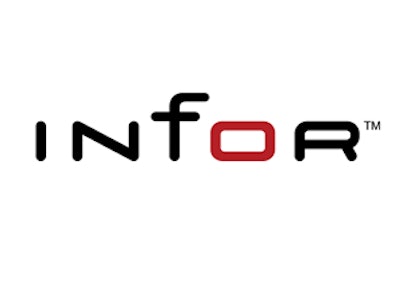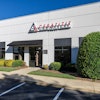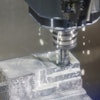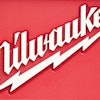
Now more than ever distributors are faced with increasing customer demands to deliver more than what was expected from them before, such as managing customers’ inventory, supporting a mobile workforce, improving relationships with suppliers and integrating with manufacturing requirements. In order to remain competitive, distributors can take advantage of new and existing technology investments to address these challenges, all without hurting their bottom line. In order to do so, distribution companies are often using enhanced ERP and workflow technologies, such as Infor’s Infor10 Distribution, to better manage warehouse workflow, automate purchasing, streamline work process and improve inventory management. By cutting out unnecessary complexity, distributors are able to increase productivity, improve profitability and grow business for both themselves and their customers
Infor focuses on offering customers a suite built specifically for the unique challenges distributors face each business day. As the third largest ERP provider in the world, pushing $3 billion in revenue, Infor recognizes that every industry has its own unique requirements and challenges, and strives to differ from other ERP solution providers in their commitment to offer solutions that offer specific value to each industry.
ID: How does Infor focus on industry-specific ERP solutions?
Andy Berry, VP and GM, Infor Distribution |
Berry: For distribution, we have made several acquisitions that have enabled us to provide ERP solutions specifically for wholesale distributors. That is what makes Infor distinctly different than its original incarnation. Our large initial investments play across all of our industries and that industry then tailors it to their needs. For a company owner, Infor will provide the background, the infrastructure and the templates, but because Infor is focused on wholesale distribution, our business unit takes that last ten percent and adds those unique items and elements that a wholesale distributor would want in their mobile applications – something we’re doing across all the new innovations that Infor is rolling out. Take the Infor and SalesForce.com relationship for example, Infor is partnering with another large corporation to provide CRM technology, but the distribution unit tailors that last ten percent that makes it useful and relevant to our industry. This amounts to big leverage at a corporate level, but with a focus on industries and micro-industries so that we can treat even electrical, plumbing, and building materials differently within the wholesale distribution category to address the unique challenges of each micro-vertical.
ID: What do you mean by the term “enhanced ERP”? What is it doing more of or better than current ERPs on the market?
Berry: The core ERP system hasn’t really changed, but what I mean by enhanced is when you surround ERP packages with different value-based solutions that aren’t physically hardcoded into the ERP, and they provide you with the flexibility of upgrading different parts of the application. An example of “enhanced ERP” would be the ability in our industry to tailor ERP to showroom management with a series of loosely coupled applications that surround the ERP. The application is not so much customized, but has the ability to plug in value that is relevant to your business. We are trying to get around the whole notion of having to customize the core ERP and getting into the industry focused driven model. However, technologies change so quickly that we don’t want to be dependent on having customers modify the core application each time a new functional business application comes to market. “Enhanced” allows us to plug in pieces of value without having to modify the core system.
ID: How is this technology helping distributors to better manage these new value added services that they are being asked to supply in light of these economic times?
Berry: Infor provides distributors the ability to quickly adapt and adopt. Our wholesale distribution customers are running on a variety of versions of our back-end system. If we forced them to upgrade to the latest and greatest every time we released a new version, it would be a challenge for them to keep up with us because technology is changing so quickly. So with Infor’s ION as the gateway, what we are able to do now with our customers is allow them to very quickly adopt technology and solutions because of the way we are integrating it, rather than building it directly into the core ERP. For wholesale distribution, customers are able to quickly pick up integrated supply chain technologies from us that allow them to manage inventory not only at their locations, but at their customer’s locations as well. Even if you have a branch and a central distribution system, many customers want the inventory to reside at their physical location, especially if you are looking at a just-in-time environment or at a shop where they want to be able to just walk down the hall and have available inventory without having to go to a branch. Being able to extend the inventory management capabilities into the customer locations provides better service and allows distributors to extend the value they provide to their customers. .
ID: What complexity does this system cut out?
Berry: While it doesn’t cut out any complexity, what it does do is prevent the business user from having to deal with the complexity. At the end of the day, ERP solutions are complex because of the years of industry specific features and functions they support. Infor offers a business and technical resource pool to help manage that, but what you don’t want to do is expose that complexity to a business user. That really is the difference we are looking to accomplish: how do you make it simple, with easy business process flow-type solutions for a business user and still manage that complexity from them. Many of the solutions that we are deploying are through web-based or mobile applications, like the iPad app, on phones, remote computers, etc. This format gives the end user easy access through data intelligence. They are notified of information that is relevant to them, and with the click of a button they quickly resolve that. For example, if an order comes in and it exceeds the threshold from a sales person on a margin standpoint or a volume standpoint, a message is quickly sent out to the sales manager on his phone or iPad. He quickly reviews it and clicks okay and that seamlessly goes back into the system for approval. The complexity for the order approval process is still there, it’s just transparent to the business user of the application.
ID: What is the number one feature that makes Infor10 stand out in the marketplace? What is driving innovation for this company?
Berry: The biggest feature for Infor10, and specifically for distribution, is the people and not the technology. What we are finding is that customers are looking to us for more than just a feature/function standpoint, but for that one thing that makes us unique. They are looking to a trusted partner that can deliver a solution to them. It’s really the expertise around our industry, Wholesale Distribution, which makes Infor unique. The ERP packages covering wholesale distribution has been in the market a long time, and it would be difficult to tell the difference between the core of our competitors’ solution and ours; however we can deliver a best practice solution to our customers while allowing them customers to drive more margin into their business – and that’s what makes us unique. We help our customers and their sales people to drive better margins, and we also enable our customers’ sales managers to have better visibility over their sales margin. What we also offer our customers is the expertise to implement templates out of the box without months and months of customization, and the quicker they can get the value and use the technology, the more readily it will be adopted and the more productive it will be.
Wholesale distributors are not always the leading adopters of technology so we recognize that the easier we make it for them to adopt the software, the more they will do so and the more value they get from it.
ID: Do you have any advice for distributors as they are looking for different ERP solutions? What criteria should they look at in order to choose one?
Berry: What we are pushing prospects to do is to look less at features and functions and instead look more at the “enhanced” ERP value and best practice business processes that that partner can bring them today and in the future. The difference between Infor and our competitors in our core ERP is half a percent, but what we are providing today and in the future with technology and specific wholesale distribution business innovation is where we differentiate – around those edge applications and the pockets of value we deliver our customers.


















